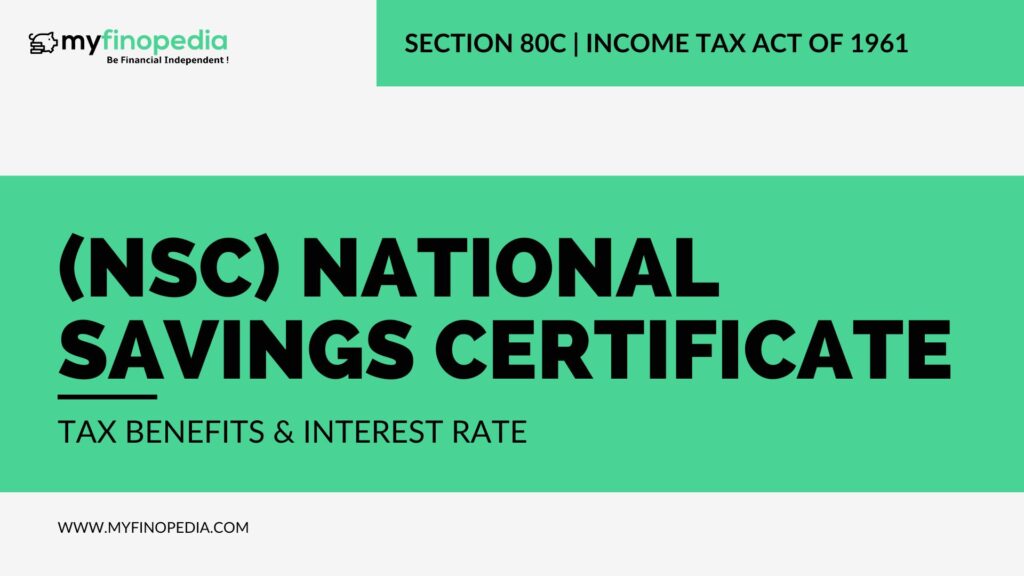NSCs, or National Savings Certificates, can be used as security for bank loans. According to Section 80C of the Income Tax Act of 1961, the owner receives tax advantages.
Meaning
The National Savings Certificate (NSC), available at the nearby post office under your name, for a minor, or on a joint account with another adult, is a method of investing with fixed income. The securities now have a fixed interest rate of 6.8%. Section 80C of the Income Tax Act states that only investments up to Rs. 1.5 lakh are eligible for a tax credit.
How it works?
Investors have a choice between two National Savings Certificate variants (NSC). The program is only open to inhabitants of India who are individuals. Investments in it are not authorized from HUFs, trusts, or non-resident Indians. The government promotes the NSC as a personal savings program.
Rate of Interest
The lock-in term is five years, the minimum investment is $1,000, and the interest rate is 6.8%. A tax advantage of up to Rs. 9.1 lakh is available under Section 80C.
| PERIOD | RATE OF INVESTMENT |
| April-June | 6.8% |
| July-September | 6.8% |
| Oct-Dec | 6.8% |
| Jan-March | 7.0% |
Features & Benefits
NSC also helps to reduce their tax bill but the advantages is not only is a safe alternative of investment for small to intermediate investors. As described below, there are several advantages to purchasing National Savings certificates:-
- You are entitled to a tax credit under Section 80C of the Income Tax Act of 1961 if you invest in National Savings Certificates (NSCs). You are allowed to invest up to 1.5 lakh in NSCs and deduct from your taxes the interest you earn both in the first and second years.
- One of the biggest advantages is that you may start off with a very little investment of just Rs 1,000 (or multiples of Rs 100) and raise it as you can.
- You’ll get the full maturity value when the contract reaches maturity. The subscriber should pay the necessary tax because there is no TDS on NSC payments. Premature exit from the program is often not permitted. They only consent to it in extreme circumstances, such as the passing of an investor, or when a judge so orders.
- Banks and NBFCs accept NSC as security or collateral for secured loans. The accountable postmaster must transfer the certificate to the bank and stamp it with a transfer stamp in order to do this.
- The government reviews the interest rate every three months, which is now set at 7% p.a. Although it will be due at maturity, it will compound yearly.
- The interest received on NSC is subject to taxation under the heading “Income from Other Sources,” but because it is reinvested for the first four years, it is not subject to income tax. This reinvestment is eligible for a deduction under Section 80C of the Income Tax Act of 1961.
- The investor may also choose a family member, even a minor, to receive the inheritance in the tragic case of the investor’s passing.
Conclusion
The time horizon for the investment has also increased now that the lengthier version of 10 years is now accessible. If you want to develop wealth while receiving tax benefits under Section 80C and Section 10 along with NSC, there are a ton of other tax-saving tools available (10D).






